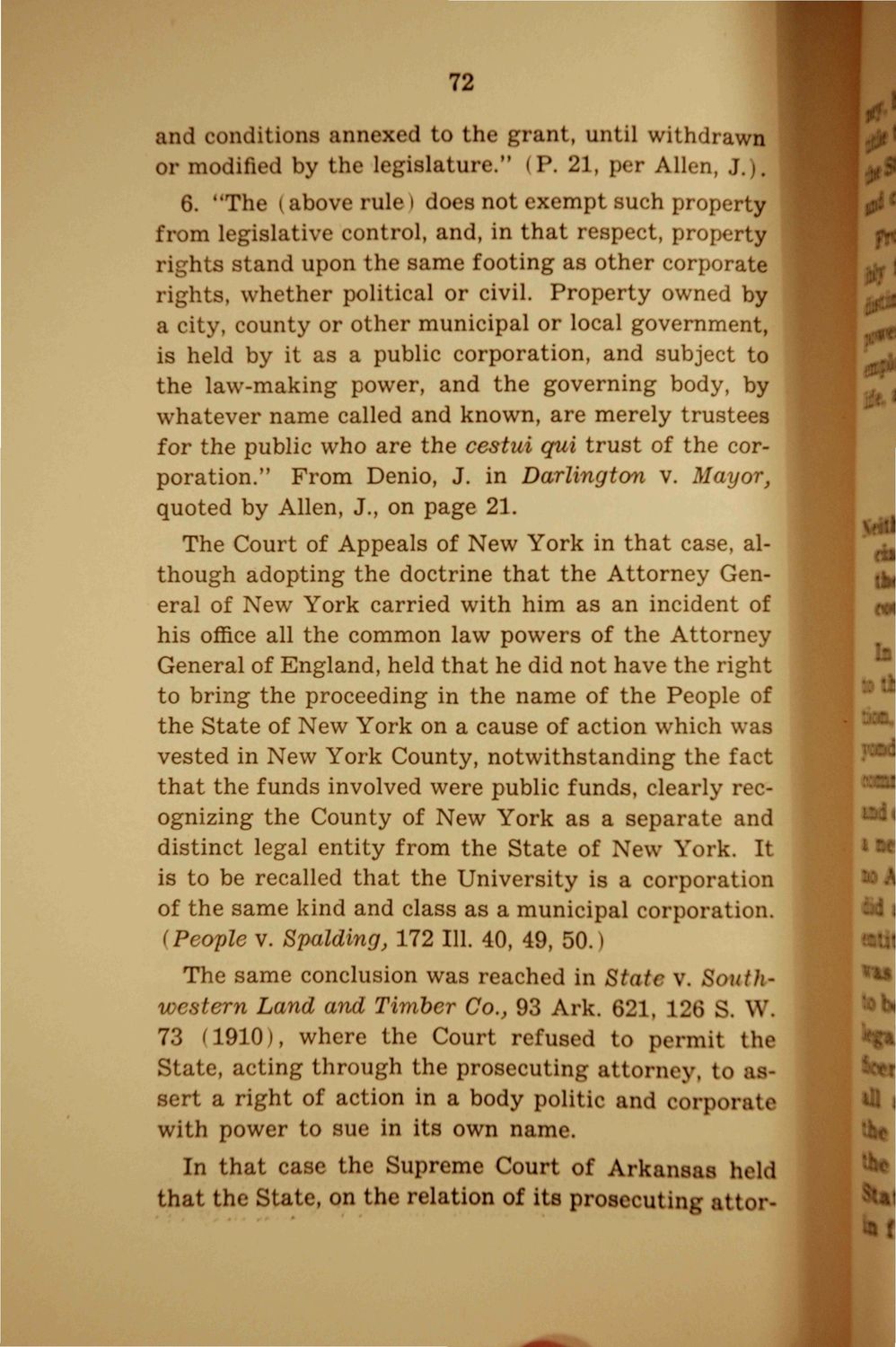| |
| |
Caption: Booklet - UI Charter of Freedom (1942)
This is a reduced-resolution page image for fast online browsing.

EXTRACTED TEXT FROM PAGE:
72 and conditions annex* 1 to the grant, until withdrawn or modified by the legislature/ (P. 21, per Allen, j . i. 6. "The 1 above rule 1 does not exempt such property from legislative control, and, in that respect, property rights stand upon the same footing as other corporate rights, whether political or civil. Property owned by a city, county or other municipal or local government, is held by it as a public corporation, and subject to the law-making power, and the governing body, by whatever name called and known, are merely trustees r for the public w ho are the cestui qui t r u s t of the corporation.'' From Denio, J. in Darlington v. Mayor, quoted by Allen, J., on page 21. The Court of Appeals of New York in that case, although adopting the doctrine that the Attorney General of New York carried with him as an incident of his office all the common law powers of the Attorney General of England, held that he did not have the right to bring the proceeding in the name of the People of the State of New York on a cause of action which was vested in New York County, notwithstanding the fact t h a t the funds involved were public funds, clearly recognizing the County of New York as a separate and distinct legal entity from the State of New York. It is to be recalled that the University is a corporation of the same kind and class as a municipal corporation (People v. Spalding, 172 111. 40, 49, 50. | The same conclusion was reached in State v. South1 <lcrn Land and Timber Co., 93 Ark. 621, L26 S. W. 73 Q910), where the Court refused to permit the State, acting through the proseculing attorney, to assert a right of action in a body politic and c rporate with power to sue in its own name. In t h a t case the Supreme Court of Arkans; * held t h a t the State, on the relation of its prosecuting at tor- 1
| |